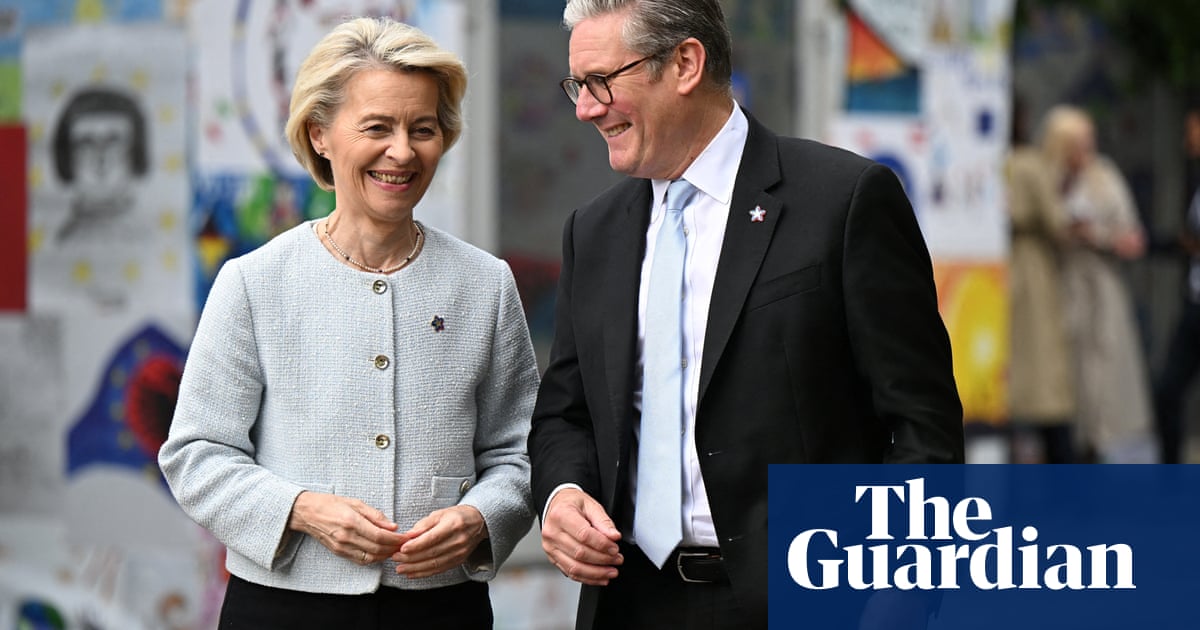The UK and EU have reached a last-minute deal over a significant reset to relations after abreakthrough over fishing rightsand checks on food and other agricultural products.
Under the agreement, finalised just a few hours before a crunch summit in London, Brussels is understood to have dropped demands to link the duration of an agreement over food and agricultural goods with fishing rights.
According to EU sources, access to British fishing waters will be granted until the end of June 2038, an extension of 12 years. In return, the agreement on easier checks for food, animal and other agricultural products, known as sanitary and phytosanitary goods (SPS), is indefinite.
While the length of the fishing rights deal is likely to prompt criticism from the Conservatives and Reform UK, it is understood that Downing Street pushed back against EU demands for a time-limited SPS deal and a permanent arrangement on fishing.
WithKeir Starmer hosting the European Commission president, Ursula von der Leyen, in London on Monday morning, overnight talks had dragged on, prompting worries that a deal might not be finalised.
EU sources were positive about the talks, with one saying: “The scene is now set for a very successful and constructive reset of the relationship.”
One element that is not expected to be finalised on Monday is the shape of any mutual youth mobility scheme, with arguments continuing about the UK’s insistence that the numbers coming in should be capped, which the EU opposes.
Speaking early on Monday, the trade and business secretary, Jonathan Reynolds, refused to say whether a deal had been completed, but said there was a “real prize” on offer for the UK.
“The current deal has huge gaps in it, not just on areas to do with trade, but to do with security as well,” he told Times Radio. “So this is about making people better off, about making the country more secure, about making sure there are more jobs in the UK.”
While Downing Street has said the meeting in London is part of a process, not a single event, with talks able to continue on any subject that is not agreed, the overnight negotiations have resembled the sometimes chaotic talks on the originalBrexitdeparture.
As well as fishing and simpler processes for food exports to and from the EU, talks have focused on better access to EU defence funding for UK companies, the possibility of a mutualyouth mobility scheme, and waysto allow UK travellersentering the EU quicker access via e-passport gates.
Fishing was a totemic part of much of the original Brexit talks, despite the industry’s relatively low contribution to UK GDP, and the Conservatives and Reform UK have warned against any deal which, in their view, would sell out the UK fishing fleet.
Mike Cohen, the chief executive of the National Federation of Fishermen’s Organisations, said on Monday morning that reaction in the industry would depend on what had been secured in return for any longer-term access to UK waters.
“If a deal has been done for a longer term, for me the question is: what have we achieved in return for that?” he told BBC Radio 4’s Today programme. “If we’ve gained some benefit for the fishing industry, for fishing communities, then that could be a deal worth doing. It’s all going to be about the details.
“If we’ve got nothing in return for that, for the fishermen and their businesses, the communities that depend on them, then that would have been a very poor deal from our point of view.”
